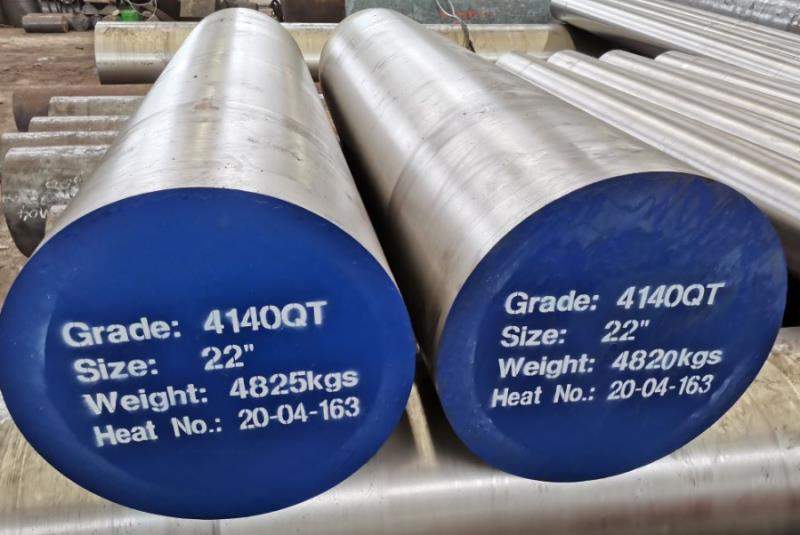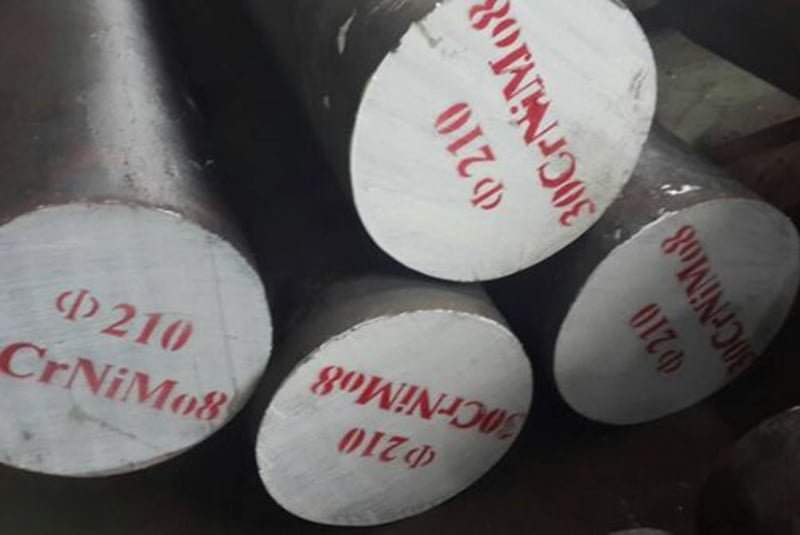Introduction
Alloy steel round bars are a fundamental component in various industries, known for their versatility, strength, and durability. Whether you are involved in construction, automotive engineering, or manufacturing, understanding the intricacies of alloy steel round bars can significantly impact your project’s success. This comprehensive buying guide will explore everything you need to know about alloy steel round bars, including their benefits, applications, and the key factors to consider when making a purchase.
Understanding Alloy Steel Round Bars

What is an Alloy Steel Round Bar?
An alloy steel round bar is a cylindrical piece of metal made from a combination of iron, carbon, and other alloying elements such as chromium, nickel, and molybdenum. These additional elements enhance the steel’s mechanical properties, making it suitable for various demanding applications.
Types of Alloy Steel Round Bars
Alloy steel round bars come in different types, each offering unique properties tailored to specific needs:
Chromium-Molybdenum Alloy Steel: Known for its high strength and excellent resistance to wear and corrosion, this type is commonly used in automotive and construction industries.
Nickel-Chromium Alloy Steel: This type offers exceptional toughness and resistance to impact, making it ideal for heavy machinery and tool manufacturing.
Manganese Alloy Steel: Featuring high strength and wear resistance, it is often used in mining equipment and railways.
Benefits of Alloy Steel Round Bars
Strength and Durability
One of the primary advantages of alloy steel round bars is their superior strength and durability. The alloying elements significantly enhance the steel’s mechanical properties, making it capable of withstanding heavy loads and harsh conditions.
Corrosion Resistance
Many alloy steel round bars are designed to resist corrosion, which is particularly important in applications exposed to moisture, chemicals, or extreme temperatures. Chromium and nickel are common alloying elements that provide excellent corrosion resistance.
Versatility
Alloy steel round bars are highly versatile and can be used in various applications, from structural components in construction to critical parts in automotive engineering and manufacturing tools.
Heat Resistance
The addition of elements like chromium and molybdenum gives alloy steel round bars excellent heat resistance. This property makes them suitable for high-temperature applications, such as in power plants and industrial furnaces.
Key Factors to Consider When Buying Alloy Steel Round Bars
Grade and Composition
The grade and composition of alloy steel round bars determine their mechanical properties and suitability for specific applications. Common grades include:
- 4140: Known for its high tensile strength and toughness.
- 4340: Offers excellent fatigue resistance and impact strength.
- 8620: Ideal for case hardening applications.
Size and Dimensions
Selecting the correct size and dimensions of the alloy steel round bar is crucial for ensuring it fits your specific requirements. Consider the diameter, length, and tolerance levels needed for your project.
Mechanical Properties
Evaluate the mechanical properties of the alloy steel round bar, such as tensile strength, yield strength, hardness, and elongation. These properties will influence the bar’s performance under different conditions.
Surface Finish
The surface finish of the alloy steel round bar can affect its performance and aesthetic appeal. Common finishes include hot rolled, cold drawn, and precision ground. Choose a finish that meets your project’s requirements.
Supplier and Quality Assurance
Choosing a reputable supplier is essential to ensure you receive high-quality alloy steel round bars. Look for suppliers who provide material certifications, quality assurance, and reliable customer service.
Table: Comparison of Common Alloy Steel Round Bar Grades
| Grade | Tensile Strength (MPa) | Yield Strength (MPa) | Hardness (HB) | Key Properties | Common Applications |
|---|---|---|---|---|---|
| 4140 | 655 – 950 | 415 – 655 | 197 – 237 | High tensile strength, toughness | Automotive parts, gears |
| 4340 | 745 – 1080 | 470 – 745 | 217 – 277 | Fatigue resistance, impact strength | Aircraft landing gear, crankshafts |
| 8620 | 620 – 850 | 290 – 490 | 149 – 187 | Case hardening, good wear resistance | Gears, fasteners, machinery components |
Applications of Alloy Steel Round Bars

Construction Industry
In the construction industry, alloy steel bars are used to manufacture structural components such as beams, columns, and reinforcing bars. Their high strength and durability make them ideal for supporting heavy loads and ensuring the stability of structures.
Automotive Engineering
Alloy steel bars are widely used in automotive engineering for manufacturing critical components like axles, crankshafts, and gears. The material’s toughness and resistance to wear and impact ensure the reliability and longevity of these parts.
Manufacturing and Tooling
In the manufacturing and tooling sectors, alloy steel round bars are essential for producing tools, dies, and machinery parts. Their ability to withstand high stress and repetitive use makes them ideal for heavy-duty applications.
Oil and Gas Industry
The oil and gas industry utilizes alloy steel round bars for drilling equipment, pipelines, and offshore platforms. The material’s corrosion resistance and strength are crucial for operating in harsh environments and under high pressure.
Aerospace Industry
Alloy steel bars are also used in the aerospace industry for manufacturing landing gear, engine components, and structural parts. The high tensile strength and fatigue resistance of the material are vital for ensuring the safety and performance of aircraft.
Conclusion
Alloy steel round bars are a versatile and essential material in various industries, offering exceptional strength, durability, and resistance to corrosion and heat. Understanding the different types, benefits, and key factors to consider when purchasing alloy steel round bars will help you make informed decisions for your projects. Whether you are in construction, automotive, manufacturing, or aerospace, selecting the right alloy steel round bar can significantly enhance the performance and longevity of your applications.
FAQs
What is the difference between alloy steel bars and carbon steel round bars?
Alloy steel bars contain additional alloying elements like chromium, nickel, and molybdenum, which enhance their mechanical properties, such as strength, toughness, and corrosion resistance. Carbon steel round bars primarily contain carbon and iron, with fewer alloying elements, resulting in different properties and applications.
How do I choose the right alloy steel bar for my project?
Consider factors such as the grade and composition, size and dimensions, mechanical properties, surface finish, and the reputation of the supplier. Understanding the specific requirements of your project will help you select the appropriate alloy steel bar.
What are the common applications of alloy steel round bars?
Alloy steel bars are used in various industries, including construction, automotive engineering, manufacturing and tooling, oil and gas, and aerospace. They are used to manufacture structural components, critical automotive parts, tools, machinery parts, drilling equipment, pipelines, and aircraft components.
How do alloying elements affect the properties of alloy steel bars?
Alloying elements such as chromium, nickel, and molybdenum enhance the mechanical properties of alloy steel bars. For example, chromium improves corrosion resistance, nickel enhances toughness, and molybdenum increases strength and heat resistance.
Can alloy steel bars be heat-treated?
Yes, alloy steel bars can be heat-treated to further enhance their mechanical properties. Heat treatment processes such as annealing, quenching, and tempering can improve the material’s hardness, strength, and toughness, making it suitable for specific applications.
